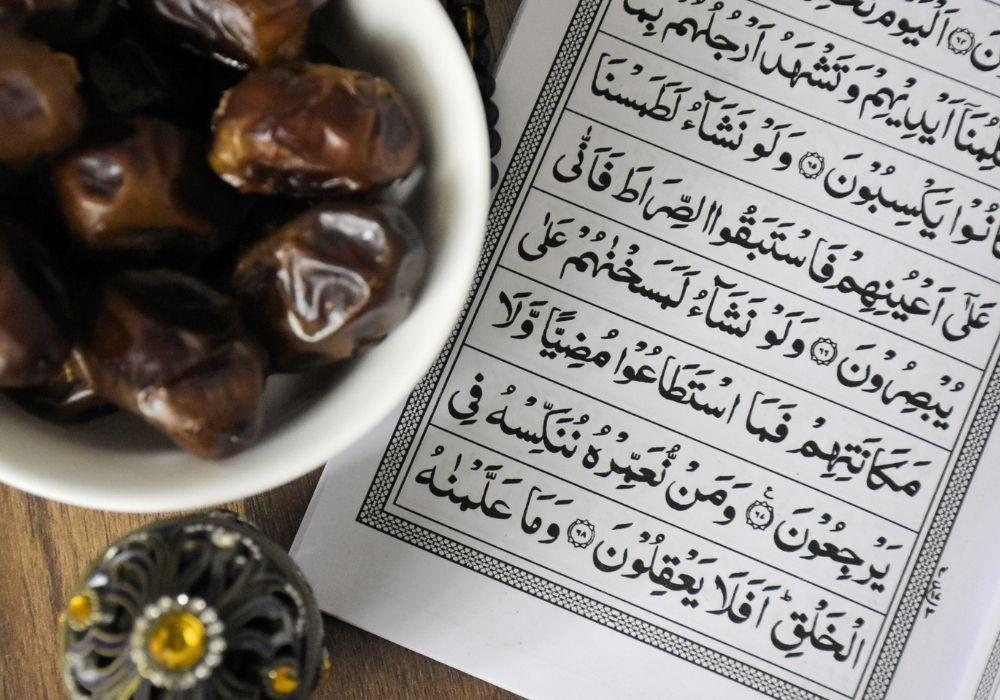
Fasting is more than just abstaining from food but also from indecent speech and lustful desires as well. Fasting pushes us to be cognizant of our actions, patient, and moral individuals, thereby increasing our taqwa. We must always be conscious of our Ramadan speech and actions; otherwise, we’ll never reap the rewards that fasting brings.
The Prophet's companions (SAW) prepared for Ramadan months in advance. So, if we want to make the best of this Ramadan, we must prepare! Here are some ways we can improve on different aspects of our life so we can fully benefit from the good deeds that are multiplied during Ramadan.
The two months preceding Ramadan, Rajab and Shaban, are prime times to start fasting those extra fasts or making up your missed fasts from last Ramadan.
Usamah ibn Zayd (may Allah be pleased with him) said:
I said, ‘Oh Messenger of Allah, I do not see you fasting in any other month like you fast in Shabaan.’ He said, ‘That is a month to which people do not pay attention, between Rajab and Ramadan, and it is a month in which deeds are lifted up to the Lord of the Worlds. I like for my deeds to be lifted up when I am fasting.’” (Narrated by al-Nasaai)
The best way to prepare to fast for a whole month is to start fasting often in order to gain control over your actions, stomach and desires.
Make Dua for fasting on Mondays and Thursdays. Abu Hurairah reported that the Prophet (SAW) would fast Monday and Thursday. He was asked about that, and he said:
“The deeds of people are presented to Allah every Monday and Thursday. Allah forgives every Muslim except for those who are deserting each other.” (Hasan)
Fasting the three white days of each Islamic month (the 13th, 14th, and 15th) is a great way to prepare your body for Ramadan fasting and bring you closer to Allah (SWT) throughout the year.
Abu Tharr Al-Ghefari said: “The Messenger of Allah (SAW) said,
‘Oh Abu Dharr! If you fast three days of every month, then fast the 13th, 14th and 15th (these are called Al-Ayaam Al-Beedh, the White Days).’” (Sahih)
The Prophet (SAW) said,
“(Allah said), ‘Every good deed of Adam’s son is for him except fasting; it is for Me, and I shall reward (the fasting person) for it.’ Verily, the smell of the mouth of a fasting person is better to Allah than the smell of musk.” (Bukhari)
Reflect on portions of the Qur’an to get closer to Allah (SWT) and understand your responsibilities. Every single time you read the Qur’an, you will uncover more depths of meaning and benefit in this world and the hereafter.
Aishah (may Allah be pleased with her) related that the Prophet (SAW) said:
“Indeed the one who recites the Qur’an beautifully, smoothly and precisely, will be in the company of the noble and obedient angels. As for the one who recites with difficulty, stammering or stumbling through its verses, then he will have twice that reward.” (Muslim)
Learn more about the Prophet Muhammad ﷺ and follow him by emulating his actions.
“Say: “If you love Allah then follow me, and Allah will love you and forgive your sins. Allah is the Forgiver, the Kind.” (Qur’an 3:31)
We all make mistakes, but alhamdulillah we can always repent.
The Prophet (saw) said:
“All the children of Adam constantly err, but the best of those who constantly err are those who constantly repent.” (Tirmidhi)
This world can only be a better place if we help each other. In return, Allah (SWT) rewards us in both worlds.
“Who will give Allah a beautiful loan so that He may multiply it for him, and reward him generously?” (Qur’an 57:11)
The Messenger ﷺ said,
Prepare for Ramadan by donating to ILM today.
““Allah is in the aid of His servant as long as His aide is in the assistance of others.” (Muslim)
“Give charity without delay, for it stands in the way of calamity.” (Al-Tirmidhi)
Everyone can be a little bit more kind and work on different aspects of their character.
The Prophet (saw) used to say:
“The best amongst you are those who have the best manners and character.” (al-Bukhari)
With less time to eat during Ramadan, we need to pay attention to what we eat. Now is the best time to research the nutritious value of the food we eat. While we fast, the food we eat before we start our fast or to break our fast needs to provide the optimal energy so we can accomplish our daily tasks and increase our worship.
Overeating, too, is hazardous. Ash-Shafi’i said:
“I have not filled myself in 16 years because filling oneself makes the body heavy, removes clean understanding, induces sleep and makes one weak for worship.”
In order to take full advantage of this holy month, we need to prepare ourselves spiritually, mentally and physically. Insha’Allah if we constantly try to improve ourselves, by the end of Ramadan, we can easily move to the next level spiritually.